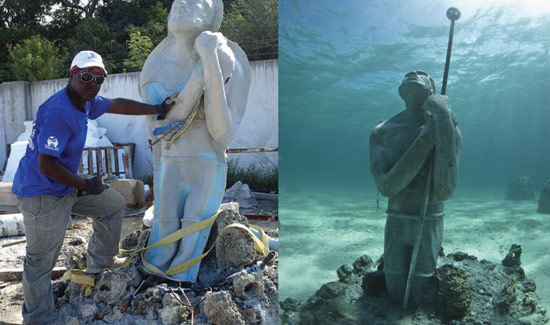New research by an international team of researchers has revealed the previously unidentified role that fish play in the production of sediments in the world’s oceans.
It specifically relates to the carbonate sediments that contain critical records of changes in ocean chemistry and climate shifts in the geological past.
The discovery, made by a team of scientists from the UK and US, helps explain the origins of a key component of marine sediments – the fine-grained carbonates, the origins of which are often problematic to resolve.
Published in The Proceedings of the National Academy of Science (PNAS), the study describes the discovery of an entirely new source of marine carbonate and one that has major implications for understanding the origins of the sediments that form ancient limestone and chalk deposits.
Until now it was believed that the fine-grained carbonates that constitute a major component of marine carbonate sediments were derived primarily from either direct precipitation out of seawater or from the breakdown of the skeletons of marine invertebrates and algae.
This study, funded by the UK’s Natural Environment Research Council (NERC), shows that large volumes of carbonate crystals are precipitated inside the intestines of marine fish and are then excreted at very high rates, releasing this lesser-known, non-skeletal carbonate into the marine environment.



